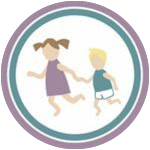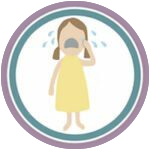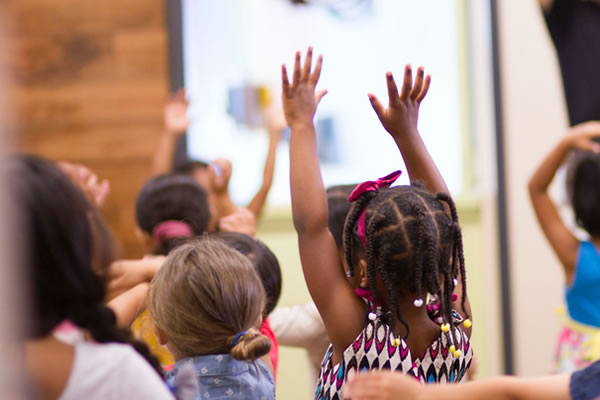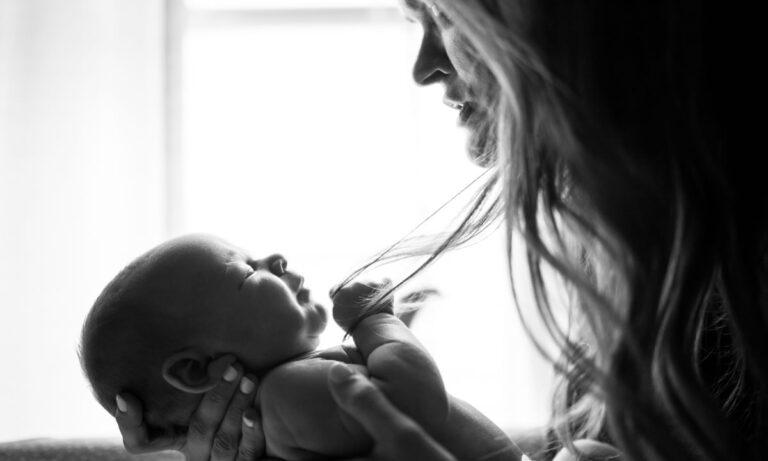We need not hold our awe inside. Appreciation and love (not praise – which is evaluation), can be shared abundantly. Ask yourself what touches you more, when someone says to you, “You are great” or when she says, “I feel inspired by your words.” It is the emotional impact that we make on the people we love that matters to us the most. Express your love and appreciation unconditionally when one-on-one with your child, or, when a child shows a need for recognition of her worth, (often through disturbing behavior.)
Use those precious moments when you feel a deep bond. Share whatever is present and real for you at the moment; a smile, a hug, an action, and/or words. Instead of vague expressions of praise share how you feel and how her presence inspires you. While taking a nature walk together you can say, “I feel joyful walking with you,” or, “Your interest in nature inspires me.” while helping your child wash his hair, “I love washing your hair, I feel so close to you.” Giving full attention is one of the loudest ways to express love and recognition of your child’s importance in your life. Do so by listening, watching, and serving her with joy (rather than annoyance).
When you don’t mean it, don’t say it. Finishing a phone call with a mechanical, “I love you,” or “You are great,” lacks respect and drains the meaning out of these words. If your child rolls her eyes or seems annoyed when you say something wonderful about her, you are probably not respectful of her preferences (“not here Mom,” or, “not now”), or you are dishing out praise instead of sharing your feelings.
Share your love one-on-one. It is hard to feel connected by love in groups. When you tell a few people together that you love them, no one gets it. If you tell one person in front of others how much you appreciate her, she is often embarrassed and may not believe you; the presence of others puts you in the spotlight as a good parent who expresses appreciation, and she cannot be sure that you mean it.
When to express love
It is when children behave in ways that are difficult for us that they need our love and appreciation the most. When they express their needs in desperate ways we could feel angry or bewildered. Sensing our distress a child may fear that we don’t love him and his despair escalates. Therefore, when your child expresses herself in ways that stimulate your own “bad” behavior, you have the opportunity to choose between fear and love. Being afraid that your compassion will “condition” your child to behave “badly,” you might stop your love and miss the opportunity to meet her emotional needs and to resonate with her inner experience. A child who acts out of control needs assistance; it is as though she is drowning. When you offer her the rope to pull her out of the water, with empathy, love, appreciation, and care, she will rise out wet, but inspired by her own strength and beauty.
I recall when my children and a couple of friends were having a ball in the bedroom jumping on the bed and laughing. Every now and then I heard screaming. Suddenly the door opened and out came one of my children. He walked over to me: “I disturbed,” he started hesitantly, “they said that if I disturb five times I will have to leave the room.” I opened my arms and he climbed into my lap. “I disturbed five times,” he continued. I kissed and hugged him. I said, “You wanted to stay and play but you couldn’t help yourself?” He nodded. “I know how hard it can be to control yourself.” I empathized. “I know,” he said. I hugged and kissed him again. After giving him more empathy he became quiet and I said, “When you tell me what you did I feel inspired by your honesty…” His large eyes shone. I went on, “Sitting together, I feel so connected to you… happy to be with you… I love everything about the way you are.” “Even when I disturb?” He asked, “Yes,” I responded with a smile. “I love you because you are you.” He looked at me and said, “ah.” He stayed with me for a short while drinking my unconditional appreciation and love. Then he got up and walked over to play by himself. He looked content and peaceful.
Some parents would wonder if by treating a child so lovingly after he “misbehaved” I don’t “reinforce” the “bad” behavior. However, there is no “bad” behavior in the child, only in our judgmental thoughts. A child does what she does in order to meet her own needs. When we validate her feelings, find out what her needs are, and, express our appreciation and love unconditionally, she thrives because she experiences that we care and that she is worthy and loved simply for being herself. In the process the child learns compassion; she learns to recognize the goodness in herself and in others; she learns to look for the unmet needs instead of pointing out what’s wrong; and, she learns the taste of feeling deep connection and love, unconditionally.
Words of appreciation, as in the above example, have no evaluation to live up to or to feel confused by. If I said, “You are wonderful,” my son may have doubted my sincerity and experienced me as vague or patronizing. Instead, I expressed my feelings of appreciation as related to the moment. It is not about telling the child “you are this or that…” but about sharing how I feel in response to a specific experience of his. My son, in response, seemed to have felt confident in my love and in knowing that his value in my eyes has not changed. He may have then experienced himself in high esteem, not because I said so (which I didn’t) but because being connected can shed doubts about one’s worth. He knows making human errors cannot erode love.
We don’t water a flower if it will bloom, we water it so it will bloom. Love is the water of the human soul. One of the many ways love shows up for the child is through the experience of knowing that his life matters. To fulfill this need we must express love and appreciation unconditionally. We love the child because she is herself and for no other reason.
©Copyright Naomi Aldort










